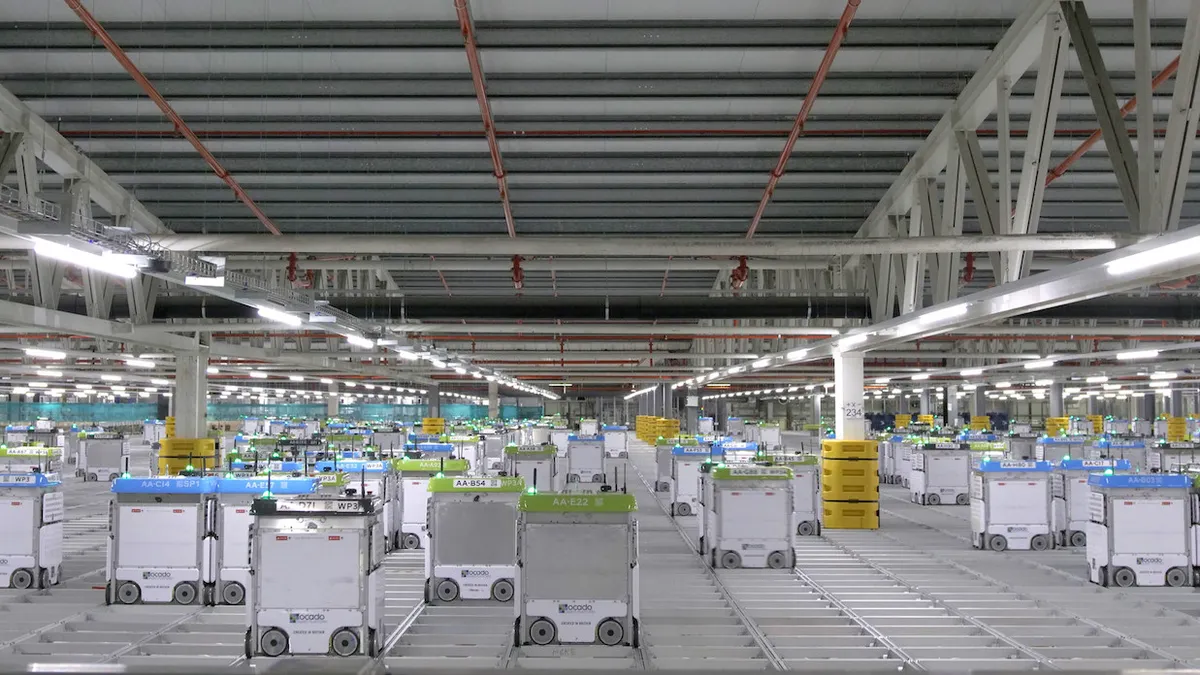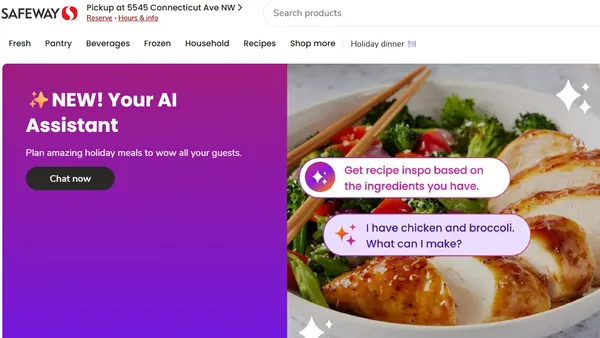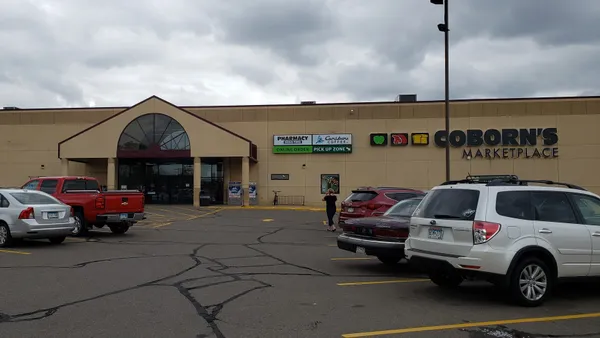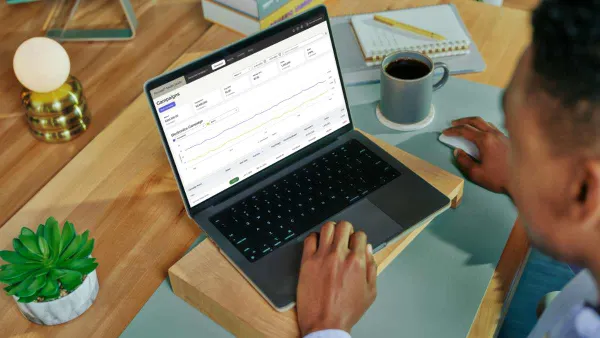Dive Brief:
- On Wednesday, Ocado, a U.K.-based online grocer, shut down its website to at least Saturday as it grapples with unprecedented consumer demand driven by the coronavirus, according to The Independent. “This temporary closure will allow us to complete essential work that will help to make sure distribution of products and delivery slots is as fair and accessible as possible for all our loyal customers,” the company said in a statement on its website.
- The retailer said no new orders can be placed for the next few days, as the company is fully booked and customers can't edit existing orders, Ocado's CEO Melanie Smith wrote. Orders scheduled for Thursday or Friday will still be delivered on time.
- A few days ago, Ocado's website and app stopped functioning because its servers were overloaded due to the influx of people shopping, The Independent reported. The retailer had already begun limiting deliveries to existing customers and open delivery slots were harder to come by.
Dive Insight:
Despite positioning itself as an innovative supplier of robotic technology to speed the delivery of groceries to consumers, Ocado has found itself in the same position as grocers who depend on human beings to fulfill grocery orders. The e-grocer struggles to handle what it called “a simply staggering amount of traffic to our website right now and more demand for products and deliveries than we can meet.”
Over the last week, many grocery stores have had to curtail their e-commerce and curbside-pickup services as consumer interest in buying groceries online surges. Instacart, Walmart Grocery and Shipt have all recently seen daily downloads of their apps more than double. A host of U.S. grocers, including Kroger's banner stores, Weis Markets, Stop & Shop and Boxed, have experienced delivery delays or had to temporarily suspend grocery-ordering services.
Still the e-grocer, which has looked to profit from the fast-growing demand for online grocery services, may be in a better position than some traditional food retailers during this time as it already has the needed infrastructure for digital ordering. The company has staked its future on using robots in massive warehouses to assemble orders and has struck deals to deploy its technology with grocers in multiple countries, including Kroger, America’s largest supermarket operator.
However, Kroger has invited criticism from analysts for embracing Ocado’s approach, which depends on large facilities outside urban areas that can be expensive and time-consuming to build. And Ocado's centralized model, in particular, has called into question its ability to support on-demand delivery services. As COVID-19 spreads and delivery demand intensifies, that strategy will be only further tested.











